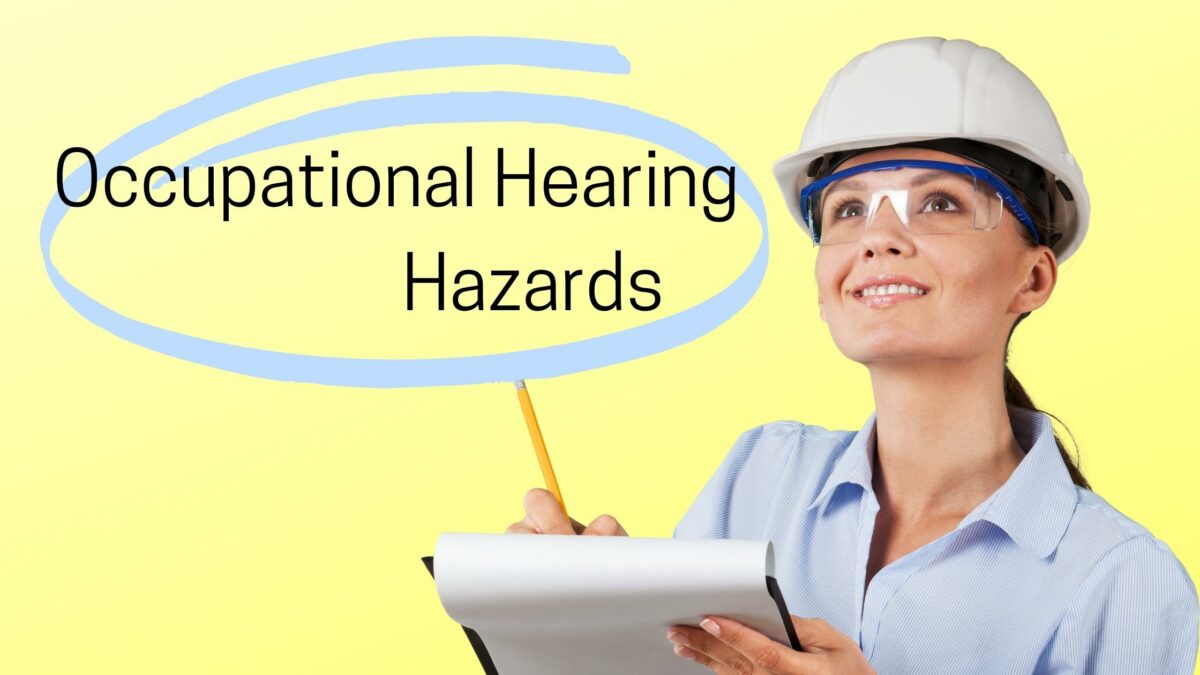If you are part of the workforce and deal with some sort of hearing loss, you are not alone. In the United States, hearing loss is the third-most common chronic physical condition. It is estimated that 12% of the U.S. workforce has hearing difficulty and about 24% is caused by occupational exposure. Hearing loss caused by exposure at work is often permanent, meaning that the more aware you can be of when and where you are exposed to hearing hazard is key to prevention.
Noise Induced Hearing Loss (NIHL)
The CDC reported that based on a 2011-2012 study, approximately 40 million adults (24 percent) displayed features of their hearing test, which indicated hearing loss in one or both ears from exposure to loud noise. Repeated exposure to loud noise can damage the tiny hair-like cells of the inner ear which transmit soundwaves to the brain, where it is interpreted. When these cells are damaged or destroyed, they cannot grow back, leaving the employee with permanent hearing damage.
The workplace is a common place for people to experience this kind of exposure, due to the regular frequency in which they attend a location or use loud machinery. Sound is measured in decibels and any decibel reading which exceeds 85dB can start to damage the ears. However, it is not just the level of sound but the length of exposure which determines the degree of damage. For instance, if someone is exposed to 85 dB or more for eight hours, five days a week (an average work week) significant hearing damage can occur over a decade. However, a decibel level of 88db, only takes half that time to start causing the same level of damage.
Protect Your Hearing
Because hearing loss is permanent, the best plan is to prevent it. Know the decibel level in your workplace. You can usually determine the ambient decibel level of an environment, by a decibel reading app on most Smartphones and devices. If the decibel level is 85dB or higher be sure to wear earplugs. OSHA mandates that employers provide ear protection to employees at no additional cost. However, this makes it up to you to take advantage of ear protection and wear it correctly. Most earplugs and protective earmuffs can lower the decibel level anywhere, from 15 to 33 decibels. If the sounds you are exposed to are louder than this, it’s important to limit your exposure and step away when possible. For instance, those who work with jet engines are exposed to decibel levels of 140db which would still leave workers with over 100dB of exposure.
Ototoxic Chemicals
Ototoxic Ants are chemicals which cause hearing loss and balance issues when absorbed through the skin, inhaled or ingested. They are often common chemicals which are used in the workplace. These chemicals must be properly labeled with warnings, but it is up to you to know which chemicals you use in the workplace are ototoxic and take proper precautions to limit exposure. Ototoxic chemicals are often found in certain pesticides, solvents and some medications. The issue is that when used in combination with exposure to loud noise, exposure to ototoxic chemicals compounds the damage to the cells of your inner ear. Ototoxic chemicals are grouped into five categories.
- Pharmaceuticals and medications
- Solvents (used for cleaning)
- Asphyxiants (such as tobacco smoke and carbon monoxide from motor vehicles)
- Nitriles (organic cyanide)
- Metals and Compounds (such as mercury and lead)
Be Proactive about your Hearing Health
The best way to protect your hearing is to be aware of potential hazards before exposure happens. Hearing damage is often cumulative so the sooner you identify occupational hearing hazards and start protecting your hearing the better off you are.
- Wear hearing protection diligently at work and encourage your coworkers to do the same.
- If you can avoid or shorten exposure to a sound make sure you do.
- If a sound is too loud, make sure you move away from it, as this actively limits the amount of noise exposure.
- Make sure to limit exposure to any chemicals which may be ototoxic and wear proper protective equipment when handling the substances.
Treating Your Hearing Loss
Hearing loss is permanent, but it is very treatable using hearing aids. Hearing aids amplify the sounds you have lost so you can keep up with conversation, be prepared for unexpected sounds and stay alert and current in the workplace. If you suspect you have some occupational hearing damage, make sure to schedule an appointment to have your hearing tested. The sooner you understand the extent of your hearing loss, the sooner you can start to heal and stay engaged at work!

